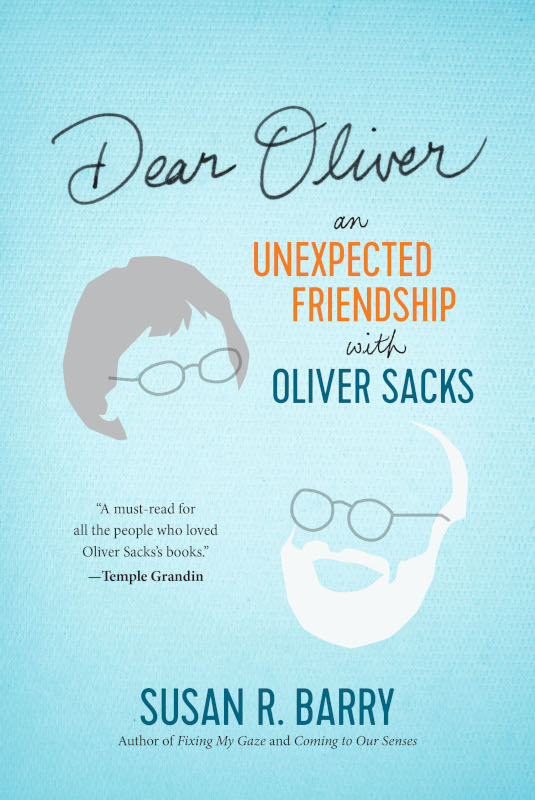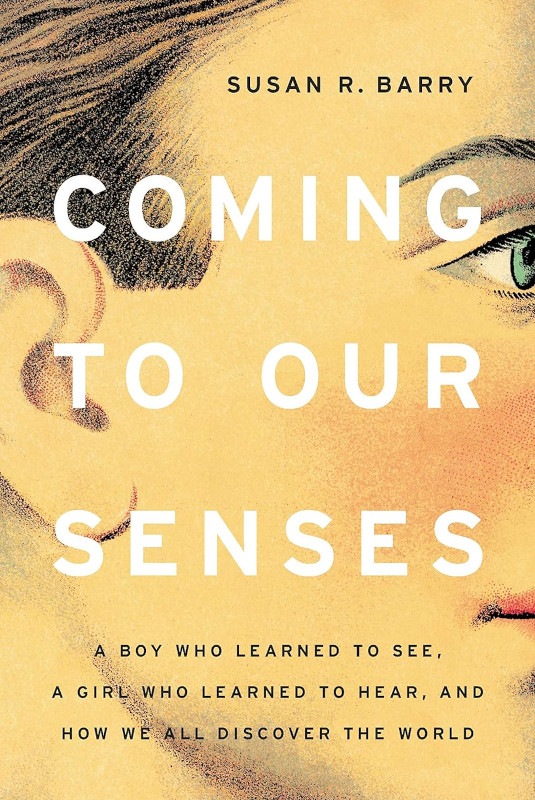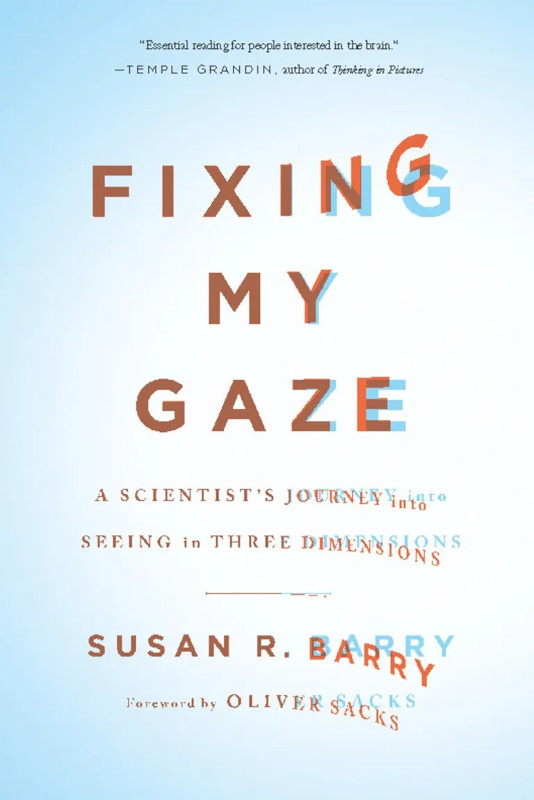Sue Barry has written three books
Dubbed “Stereo Sue” by neurologist Oliver Sacks in a New Yorker article by that name, Sue Barry has gone on to to write three books.
Dear Oliver
When Sue Barry first wrote to Oliver Sacks about her vision, she never expected a response, let alone the deep friendship that blossomed over ten years of letters. Now, in Dear Oliver, Sue shares those letters for the first time. Their shared passions - from classical music to cuttlefish, brain plasticity to bioluminescent plankton—sparked a friendship that buoyed both of them through life’s crests and falls. Then, in a painful twist of fate, as Sue’s vision improved, Oliver’s declined, and his characteristic typed letters shifted to handwritten ones. Sue later recognized this to be an early sign of the cancer that ultimately ended his extraordinary life. A funny, fascinating, and intimate glimpse of the great Oliver Sacks, Dear Oliver is also a love letter to scientific inquiry, and a testimony to the power of friendship at any time in life.
Coming to Our Senses
In Coming to Our Senses, Barry draws on the stories of two remarkable young adults, one who gained sight and one who gained hearing in adolescence. Since understanding what we see and hear comes so naturally to most of us, we assume that our senses developed spontaneously in infancy—that gaining sight or hearing later in life would be like turning on a light switch or a sound system. In fact, nothing could be further from the truth. The real story is far more interesting and inspiring, with much to teach us all about the way that we perceive the world.
Fixing My Gaze
Fixing My Gaze describes the astonishing experience of gaining 3D stereovision after a lifetime of seeing in only two dimensions. Intensive vision therapy created new neural connections, and with them, a new view of the world. Challenging conventional wisdom that the brain is programmed for life during a critical period in childhood, Barry offers a poignant and revelatory account of our capacity for change.



